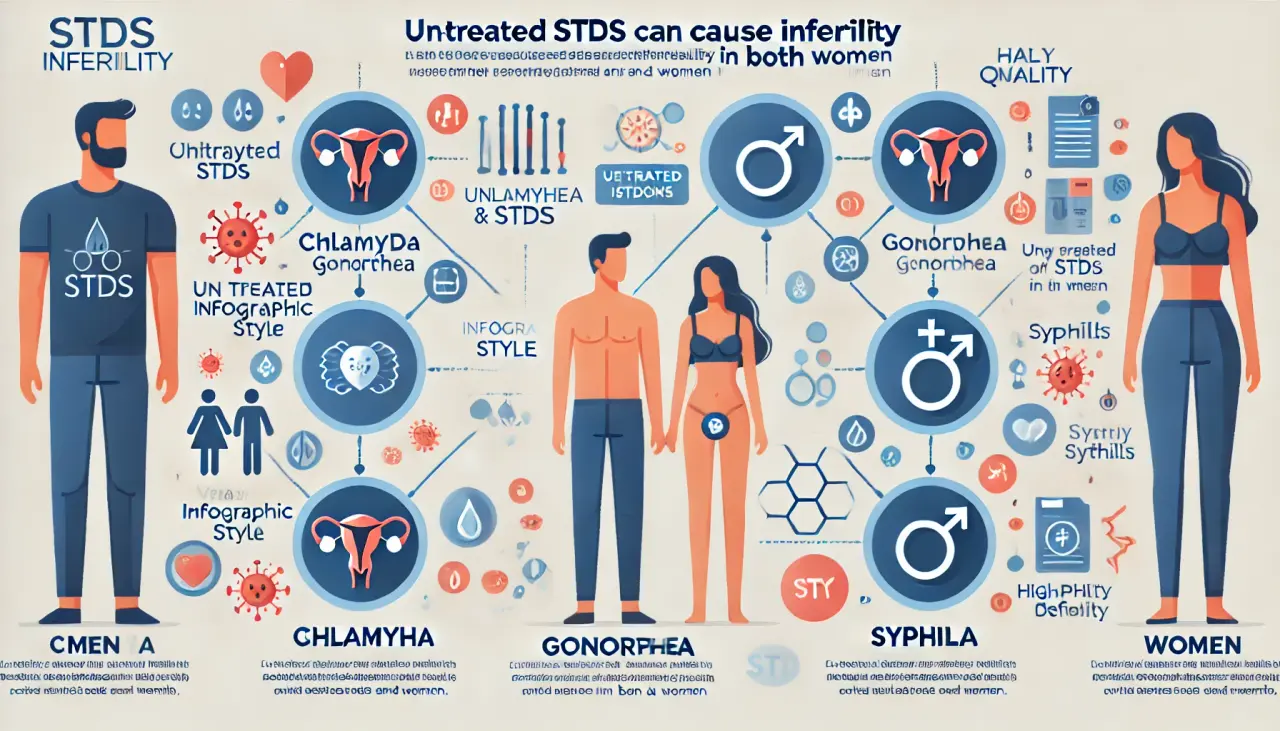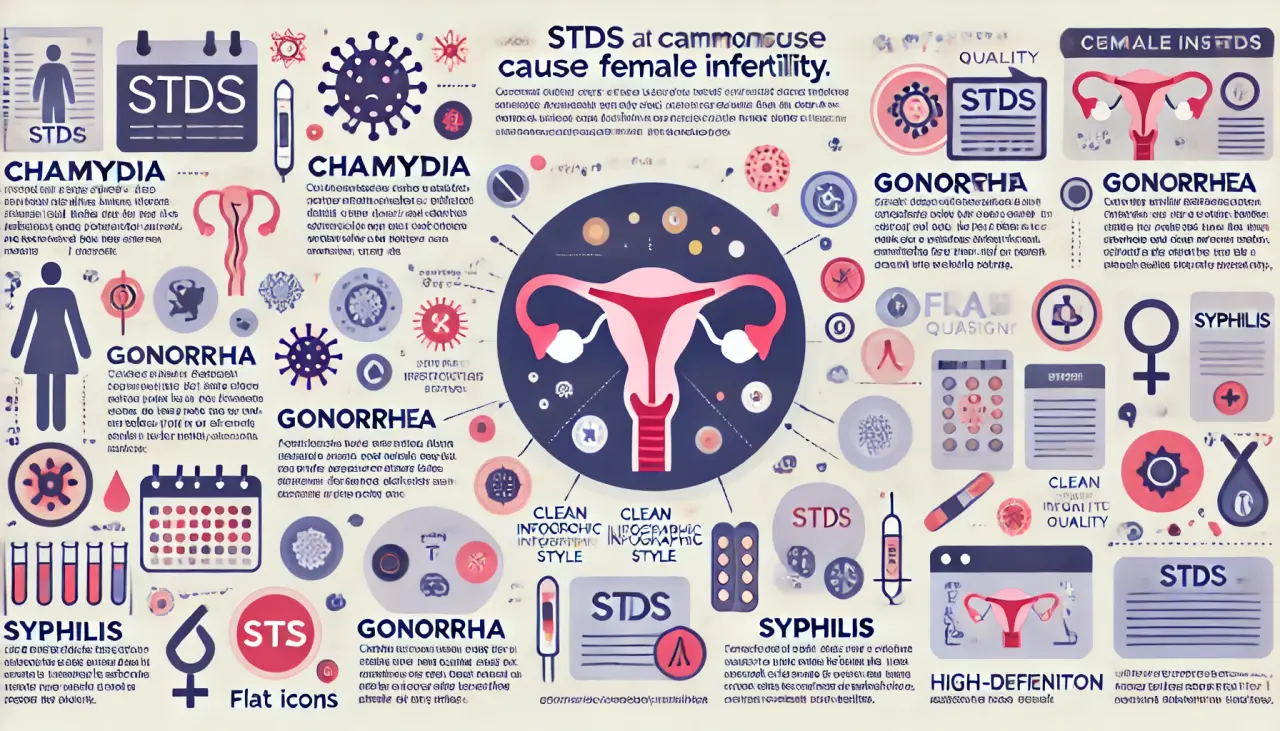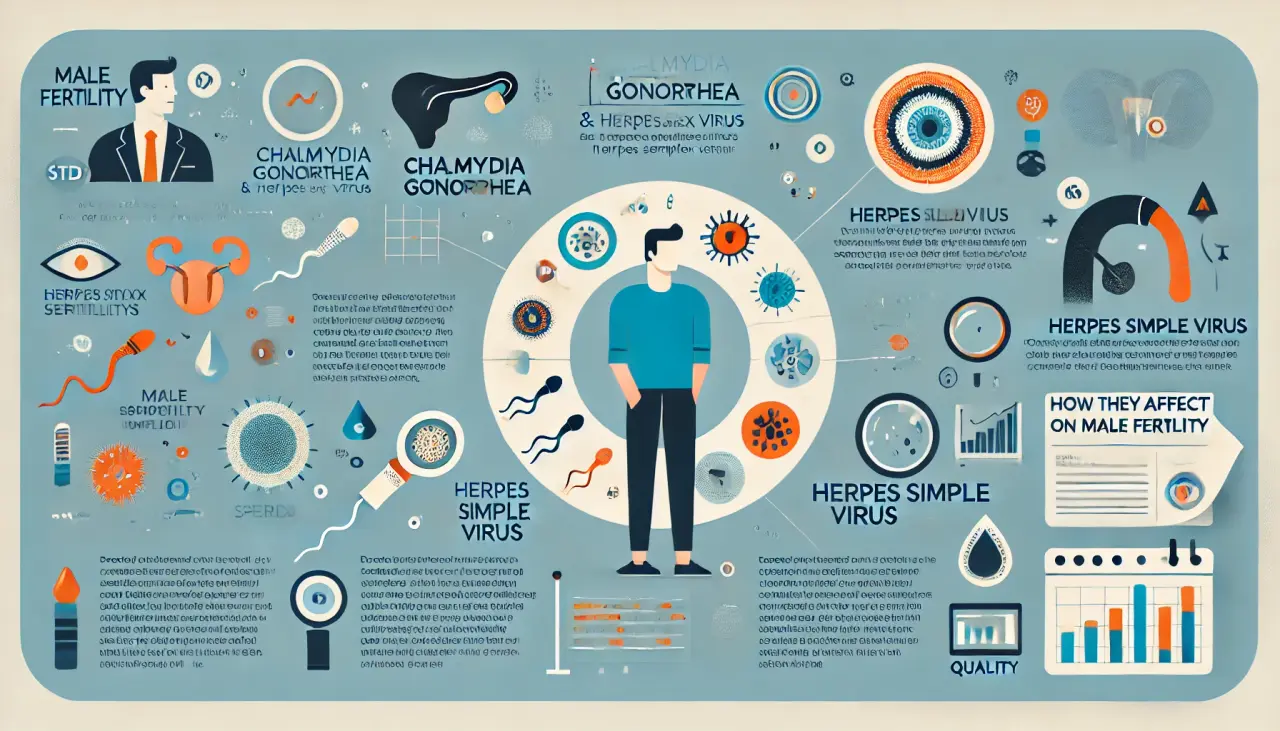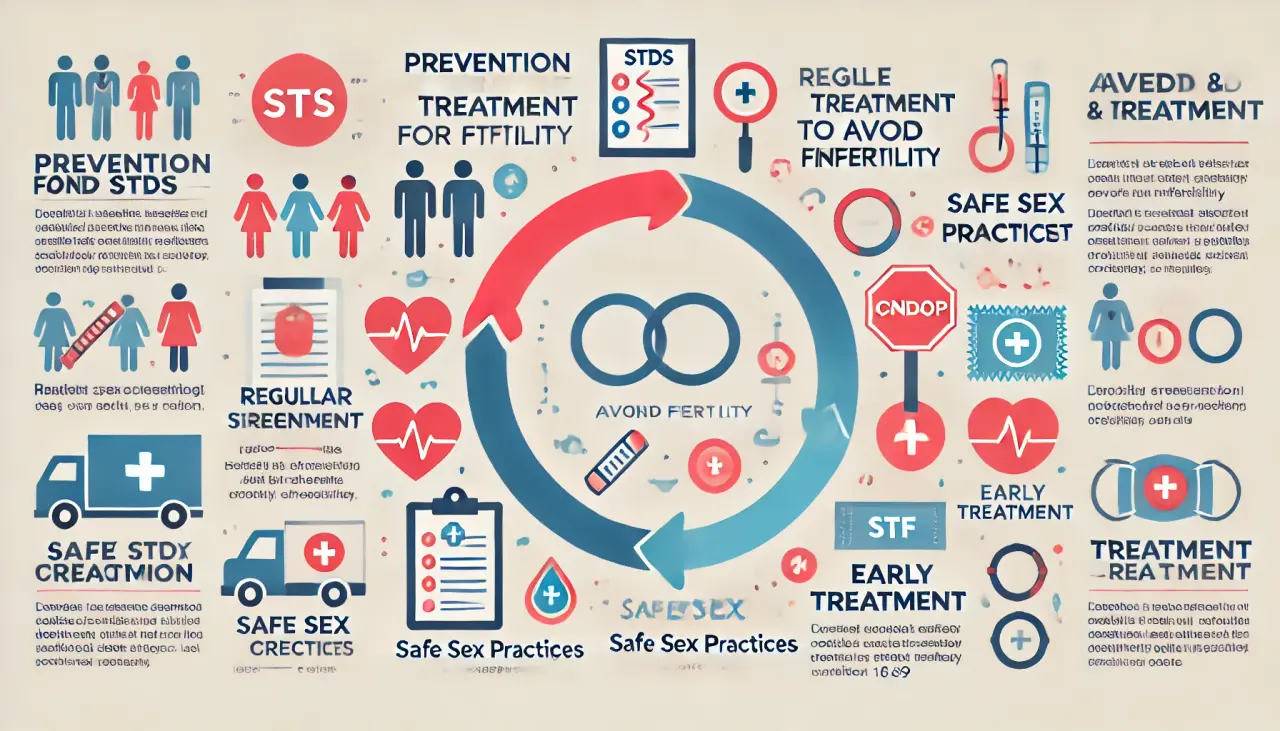
STDs and Infertility: How Sexually Transmitted Diseases Cause Fertility Problems in Men and Women
The relationship between sexually transmitted diseases (STDs) and infertility is a crucial topic for both men and women, whether or not they plan on having children. STDs and infertility are closely linked, with many STDs leading to fertility problems when left untreated. Sexually transmitted diseases, also known as sexually transmitted infections (STIs), can be caused by bacteria, viruses, and parasites, and are typically spread through sexual contact. In some cases, even non-sexual activities can facilitate the transmission.
Certain STDs can directly or indirectly contribute to fertility problems caused by STDs. It’s important to note that many STDs do not show obvious symptoms, which means that they may go unnoticed and develop into more severe health issues, including infertility. Some of these infections can affect the reproductive organs, while others may interfere with normal reproductive functions. This article explores how STDs cause infertility in men and women, and how they affect the reproductive system.

Infections That Cause Female Infertility
1. What Are Sexually Transmitted Diseases (STDs)?
An STD (sexually transmitted disease) is an infection caused by certain bacteria, viruses, or parasites. These diseases can be transmitted through sexual activity or even non-sexual contact. More than 30 types of STDs are known today, with the most common being:
- Chlamydia
- Gonorrhea
- Syphilis
- Human Papillomavirus (HPV)
- Herpes Simplex Virus (HSV)
- HIV/AIDS
- Mycoplasma
- Hepatitis B and C
2. Who Is at Higher Risk for STDs?
Anyone who is sexually active can contract an STD, but some people face a higher risk of infection. These include individuals who:
- Have multiple sexual partners
- Engage in unprotected sex
- Are teenagers or in their early twenties (due to more unprotected sexual activity)
- Are sex workers
- Are men who have sex with men
- Have a history of STDs
- Have limited access to healthcare
- Live in areas with high STD rates
- Use drugs or alcohol, which may lead to risky sexual behaviors
2.1 How Are STDs Transmitted?
STDs are most commonly spread in the following ways:
- Unprotected sexual activity (vaginal, oral, or anal contact)
- Touching sexual organs
- Sharing contaminated items such as toothbrushes or needles
- Kissing or skin-to-skin contact with an infected person
- Blood transfusions (if untested)
- From an infected mother to her baby during pregnancy, childbirth, or breastfeeding
3. Can STDs Lead to Infertility?
Certain STDs can cause infertility in both men and women. As some STDs may not show symptoms, individuals may not realize they have been infected until significant damage has been done to the reproductive system. When STDs affect the reproductive system, they can cause scarring, inflammation, or permanent damage, leading to fertility problems caused by STDs.
Infertility caused by STDs is largely preventable. Regular screening and early treatment are key steps in diagnosing and addressing STDs before they lead to serious complications. Practicing safe sex and getting regular check-ups are crucial in reducing the risk of STDs and their related fertility consequences.
3.1 Which STDs Can Cause Infertility?
Not all STDs cause infertility, but some increase the risk of fertility issues. The extent to which an STD causes infertility depends on factors like the type of infection, its severity, and how quickly it is treated. Common STDs that can cause infertility include:
- Chlamydia
- Gonorrhea
- Syphilis
- Mycoplasma
- Human Papillomavirus (HPV)
- Herpes Simplex Virus (HSV)
- HIV/AIDS
- Hepatitis B and C
- Trichomoniasis

3.2 Can STDs Lead to Male Infertility?
STDs can affect male fertility by damaging the testicles, sperm quality, or the pathways that carry sperm. These infections may lead to male infertility or fertility issues, affecting sperm count, motility, or vitality.
3.2.1 Which STDs Can Cause Male Infertility?
Some STDs known to cause male infertility include:
- Chlamydia: Affects the testes and can cause epididymitis, blocking sperm ducts.
- Gonorrhea: Can also cause sperm duct blockages, reducing sperm motility and count.
- Syphilis: Causes epididymitis and can damage reproductive organs, leading to reduced sperm count and motility.
- HSV (Herpes Simplex Virus): Can affect sperm quality, lowering sperm motility.
- HPV: Lowers sperm motility and quality, affecting morphology.
- Mycoplasma: Can cause epididymitis or urethritis, potentially lowering sperm vitality.
- HIV/AIDS: While HIV doesn’t directly cause infertility, its impact on immune health and fertility treatments can result in male infertility.
- Trichomoniasis: Causes inflammation in the male reproductive organs, impacting sperm quality.
3.3 Can STDs Lead to Female Infertility?
STDs that go untreated can damage the fallopian tubes, uterus, and cervix in women, leading to infertility.
3.3.1 Which STDs Can Cause Female Infertility?
Common STDs that can lead to female infertility include:
- Chlamydia: Causes pelvic inflammatory disease (PID), damaging reproductive organs.
- Gonorrhea: Can also cause PID and lead to infertility or ectopic pregnancies.
- Syphilis: Can cause permanent damage to reproductive organs, resulting in infertility.
- HPV: High-risk strains can lead to cervical cancer, affecting fertility.
- HSV: While it doesn’t directly cause infertility, it can lead to pregnancy complications.
- HIV/AIDS: Affects reproductive health, though it does not directly cause infertility.
- Trichomoniasis: Can lead to infertility if left untreated.

3.4 How Long Does It Take for STDs to Cause Infertility?
The time it takes for an STD to result in infertility varies. Factors such as the type of STD, how long it goes untreated, and overall health play a significant role. Some common STDs may show symptoms in as little as a few days, while others may take years to manifest.
Conclusion
STDs are a leading cause of infertility and complications during pregnancy. Regular screenings, safe sex practices, and prompt treatment can prevent infertility caused by STDs. If you’re sexually active and concerned about your fertility, it is important to stay informed and take preventative steps.